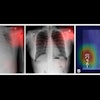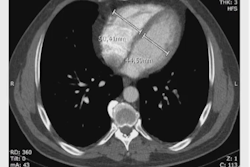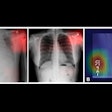U.S. Alzheimer’s disease (AD) research centers saw a 77% drop in participants enrolling in clinical trials due to the COVID-19 pandemic, according to a study conducted by epidemiologists at the University of Pittsburgh.
Notably, the effect was experienced most keenly by historically underserved populations, with a 91% drop in Black/African American participants compared with 71% in white participants, wrote lead author Elizabeth Shaaban, PhD, of the school’s Alzheimer's Disease Research Center (ADRC), and colleagues.
“Innovative recruitment strategies will be required to ensure that the post-pandemic ADRC participant pool is enriched for prodromal AD cases and is equitable in representation of Black/African American and Hispanic participants and women,” the group stated. The study was published February 1 in Alzheimer’s and Dementia.
Severe underrepresentation of people from racially and ethnically diverse backgrounds in Alzheimer’s disease research has been well documented, the authors noted. Research centers funded by the U.S. National Institute on Aging (NIA) were the focus of numerous initiatives to promote diversity and inclusion in the years leading up to the pandemic, they added.
In this study, the researchers considered how the COVID-19 pandemic may have undermined this progress.
The team used data on 10,105 participants (mean age, 69.4 years; 58% female; 10% Hispanic/Latino; 14% Black/African American) from 30 U.S. ADRCs. It performed a time series analysis to assess the relationship of the pandemic with enrollment and calculated projected dates of enrollment recovery.
The analysis showed that the pandemic was associated with an immediate overall 77% drop in enrollment rate, with a 91% drop in Black/African American participants compared to 71% in white participants. Meanwhile, enrollment of both Hispanic and female participants was declining 1.4% and 0.3% per month prepandemic, the group added.
The group estimated that post-pandemic enrollment has increased by 1.5% per month, with 100% recovery expected by September 2024.
“Funders and researchers should account for ongoing COVID-19 impact on ADRD research enrollment. Strategies to speed enrollment recovery are needed, especially for Black/African American and Hispanic groups,” the group wrote.
Ultimately, historically underserved communities bear a disproportionate burden of Alzheimer’s disease and arguably are most in need of the benefits from participation in research, the authors wrote.
Few recruitment approaches have been directly tested via intervention trials at Alzheimer’s disease centers, they added. Among those that have, paying participants an incentive for participation has been shown to increase both response and consent rates, they noted.
“Given that many centers in the network do not offer participant incentives, this may be an impactful, evidence-based intervention to speed enrollment recovery rates,” the authors concluded.
The full study can be found here.



















